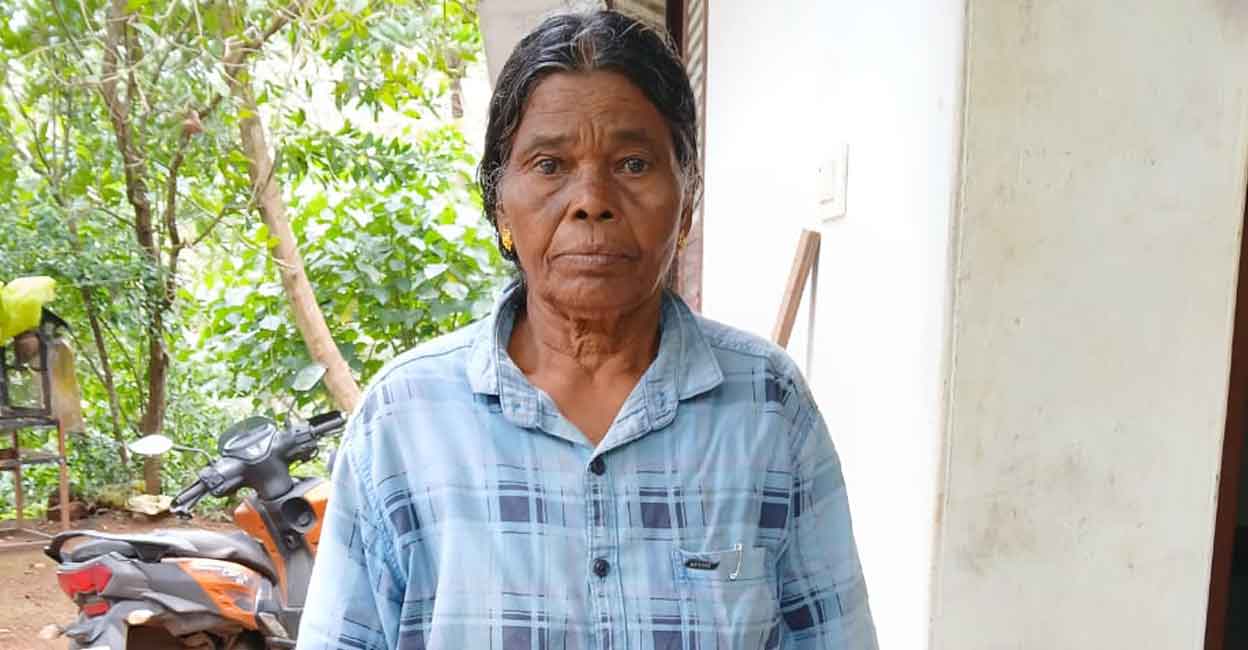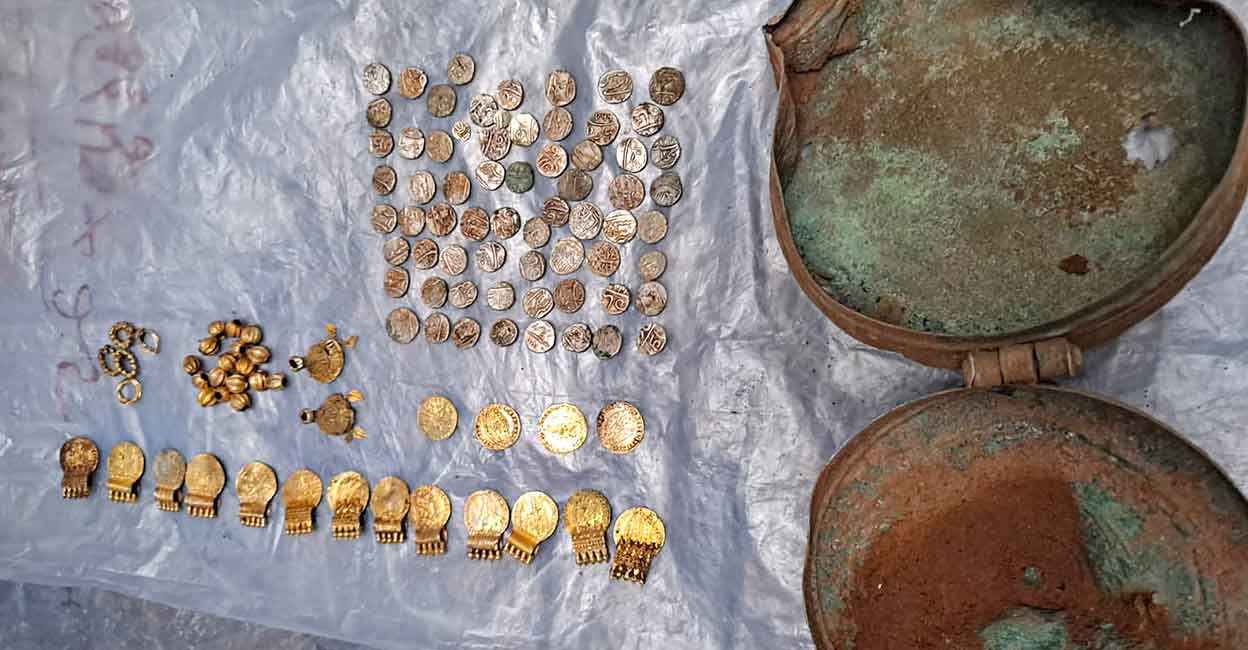Kerala women labourers who unearthed treasure recite poem to hail discovery, voice regret

Mail This Article
'For the poor, toil only earns tears
For all the taunts, you gave us joy
You made us known'
A month on, a group of women labourers in a village in Kannur who discovered a treasure chest are celebrating a poem with these lines, partly hailing their chance discovery and also voicing a regret. Women employees of rural employment guarantee scheme chanced upon the treasure containing gold coins and ornaments while making rain-water collection pits at Chengalayi in Kannur in July.
Once the mud-smeared coins and ornaments were washed with water, one of them even fashioned a necklace out of it using a string, just to see how it looks. They wanted to take a picture of them with the treasure. They had promptly kept the treasure in one of their houses, but the next day authorities including panchayat representatives and police collected the treasure chest.

“We couldn't even take a picture. It was sad. We came to know that it was centuries old and it was of immense significance. Nobody ever acknowledged us, so we thought let's make a song or a poem so that we would remember it,” said Padmini Thomas who wrote the poem.
She studied till class 5. She came to Kannur from Pathanamthitta 46 years ago. At the age of 70, Padmini still goes for work without break. She had been a rubber tapper all these years. As she aged, she took up works under the employment guarantee scheme. Her husband died and she lives with her son.
“For people like us, discovering a treasure was unbelievable. Many people teased us saying we could have kept it while others said we didn't give away the full treasure and kept something for us. We alerted the authorities. But all we wanted to do was take a picture. It is not about money or gold, but such things don't happen always right,” said Padmini.

The chest was initially discovered by Ayisha and Suhara, two women labourers. Initially they thought it was a work of black magic and were scared to touch it. By evening, they sorted the collections and arranged it. “When panchayat was alerted, they asked us to keep it for a day. We did so and by next day, authorities collected it,” said Padmini.
She wrote two poems; one thanking the treasure for giving them a sense of recognition and making them famous. The second poem carries a regret; of not being recognized for their discovery. She tore a piece of paper from a notebook and jotted down lines that came to her. “I am not an educated woman. I don't know how to write properly. So I asked my grand daughter to write it legibly as I recited what I had written. Somebody posted it on our group and many villagers said they liked it,” said Padmini.
Sulochana, another woman labourer said that they wanted to make a song or a poem to remember their discovery and Padmini came up with this poem. “It is all we could do,” said Sulochana.
The Archaeological Department later confirmed that the chest belonged to the period between 1660-1826. It included pearls, gold and silver coins, beads and ducats.

